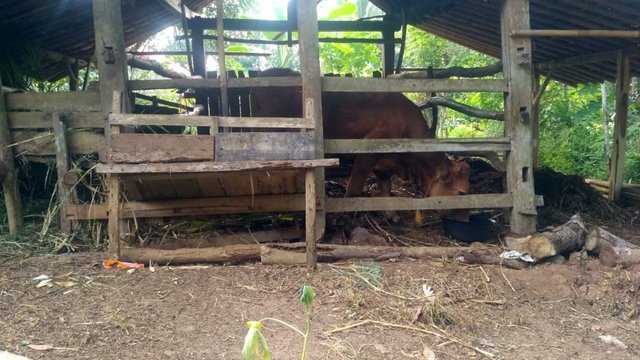Absurd Chocolate's COW Drinking?/<>.,:"';|}!@#$^*(!!!)

Some of the factors that greatly affect the fattening system in cattle are the technique of feeding/ration, the area of land available, the age and condition of the cows to be fattened, and the length of fattening. The cattle fattening business needs efforts to increase the weight of the cattle before they are sold. Red meat like beef is a source of protein that is needed by the body. Protein itself has many functions. For example, as a muscle builder, so that it will support growth in children and adolescents, besides that, it can also regulate the body's metabolism, form antibodies, heal wounds and regenerate cells, especially skin and many more. There are many traditional breeders looking for pubescent cows, but their bodies are still thin. This thin body could be due to improper feeding. There are 2 ways to fatten cows. The first is dry lot fattening system is the fattening of cows by multiplying concentrate feed. The amount of forage is only relatively small so that the efficiency of feed use is higher. The forage to concentrate ratio ranges from 40:60 to 20:80. This comparison is based on dry matter weight (BK). This system of fattening is done in a cage. Forage and concentrate feed is given to the cows in the pen. So, feed must be provided according to the correct portion of time. In this fattening system, the forage should always be available. If the cow still looks hungry, forage is given again so that it will have implications for increasing the rate of body weight gain. There is a fattening program with this system that starts with a calf that is still breastfeeding (pedetsusu). Or, young male dairy cows who have been given high quality feed rations from birth are placed in special pens. The second is the pasture fattening system, namely cows that are grazed in the pasture all day long. With this system, some cattle are not penned and some are kept after night or when the sun is shining brightly. Good grazing is that the field is overgrown with forage in the form of grass and legumes. Meanwhile, pasture land which is only overgrown with grass has a negative impact on the growth rate of cows. If possible, grazing areas where only grass should be planted with legume so that the quality of forage in the fields is better. Legumes have the ability to capture nitrogen so that the soil underneath becomes more fertile and is good for grass growth. In addition, legume also has a high protein content.
The second technique I believe is where you get better meat quality, because the beef grows and develops more freely which results in less stress and benefits the quality of the meat.
One question: could you tell me how it works or how to use that @promotedpost account. I am grateful for your answer since I am interested in using it, but I cannot find details of its use, the benefits in detail.
allright brother
Please give me details of the account I requested "@promotedpost", I need to know how to use it.